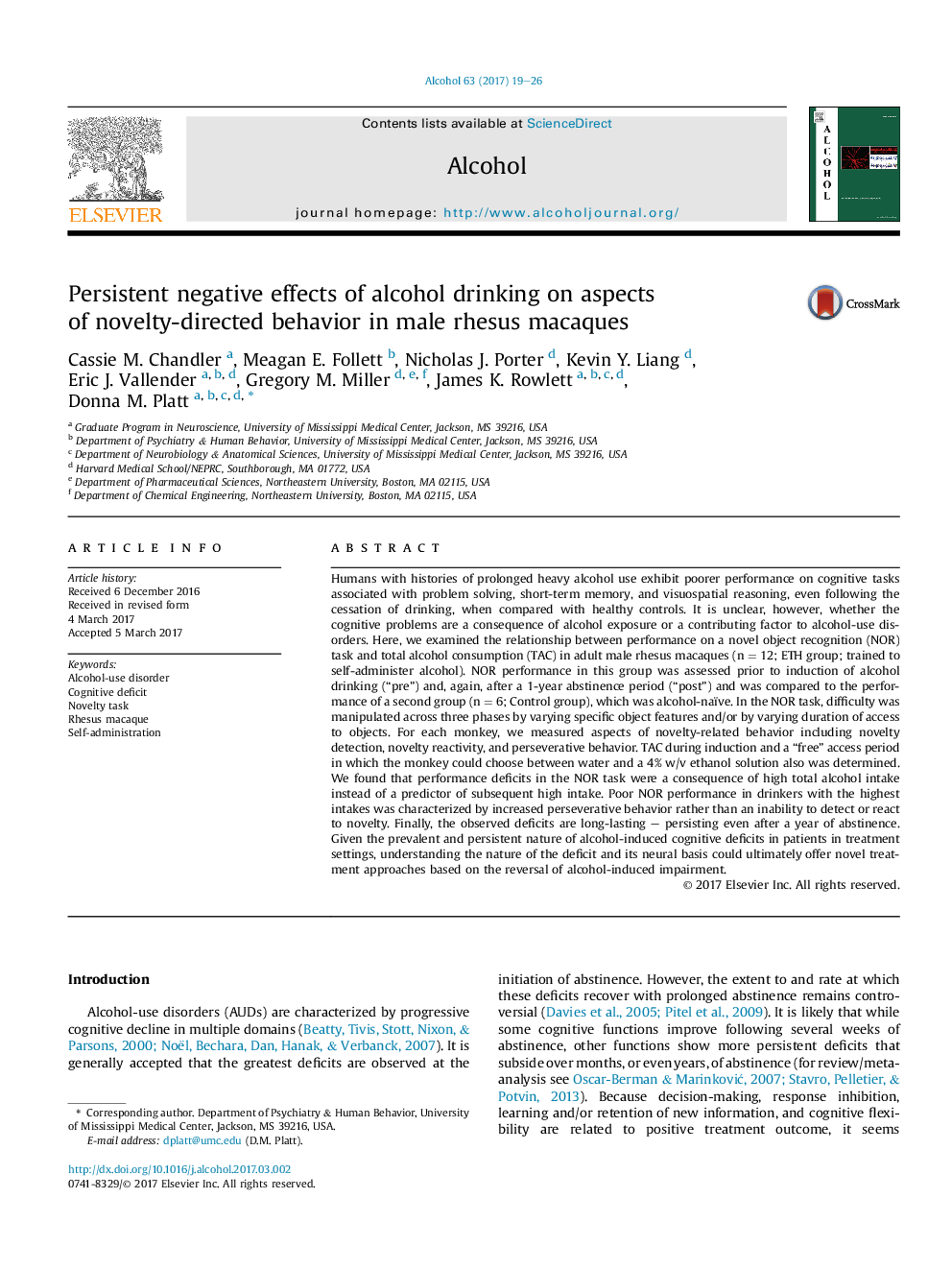| کد مقاله | کد نشریه | سال انتشار | مقاله انگلیسی | نسخه تمام متن |
|---|---|---|---|---|
| 5119688 | 1485966 | 2017 | 8 صفحه PDF | دانلود رایگان |
- Deficits on a novel object recognition task do not predict alcohol intake.
- Deficits on a novel object recognition task are a consequence of alcohol intake.
- Deficits on a novel object recognition task are long-lasting.
- Deficits manifest as increased perseverative behavior to the incorrect stimuli.
Humans with histories of prolonged heavy alcohol use exhibit poorer performance on cognitive tasks associated with problem solving, short-term memory, and visuospatial reasoning, even following the cessation of drinking, when compared with healthy controls. It is unclear, however, whether the cognitive problems are a consequence of alcohol exposure or a contributing factor to alcohol-use disorders. Here, we examined the relationship between performance on a novel object recognition (NOR) task and total alcohol consumption (TAC) in adult male rhesus macaques (n = 12; ETH group; trained to self-administer alcohol). NOR performance in this group was assessed prior to induction of alcohol drinking (“pre”) and, again, after a 1-year abstinence period (“post”) and was compared to the performance of a second group (n = 6; Control group), which was alcohol-naïve. In the NOR task, difficulty was manipulated across three phases by varying specific object features and/or by varying duration of access to objects. For each monkey, we measured aspects of novelty-related behavior including novelty detection, novelty reactivity, and perseverative behavior. TAC during induction and a “free” access period in which the monkey could choose between water and a 4% w/v ethanol solution also was determined. We found that performance deficits in the NOR task were a consequence of high total alcohol intake instead of a predictor of subsequent high intake. Poor NOR performance in drinkers with the highest intakes was characterized by increased perseverative behavior rather than an inability to detect or react to novelty. Finally, the observed deficits are long-lasting - persisting even after a year of abstinence. Given the prevalent and persistent nature of alcohol-induced cognitive deficits in patients in treatment settings, understanding the nature of the deficit and its neural basis could ultimately offer novel treatment approaches based on the reversal of alcohol-induced impairment.
Journal: Alcohol - Volume 63, September 2017, Pages 19-26
